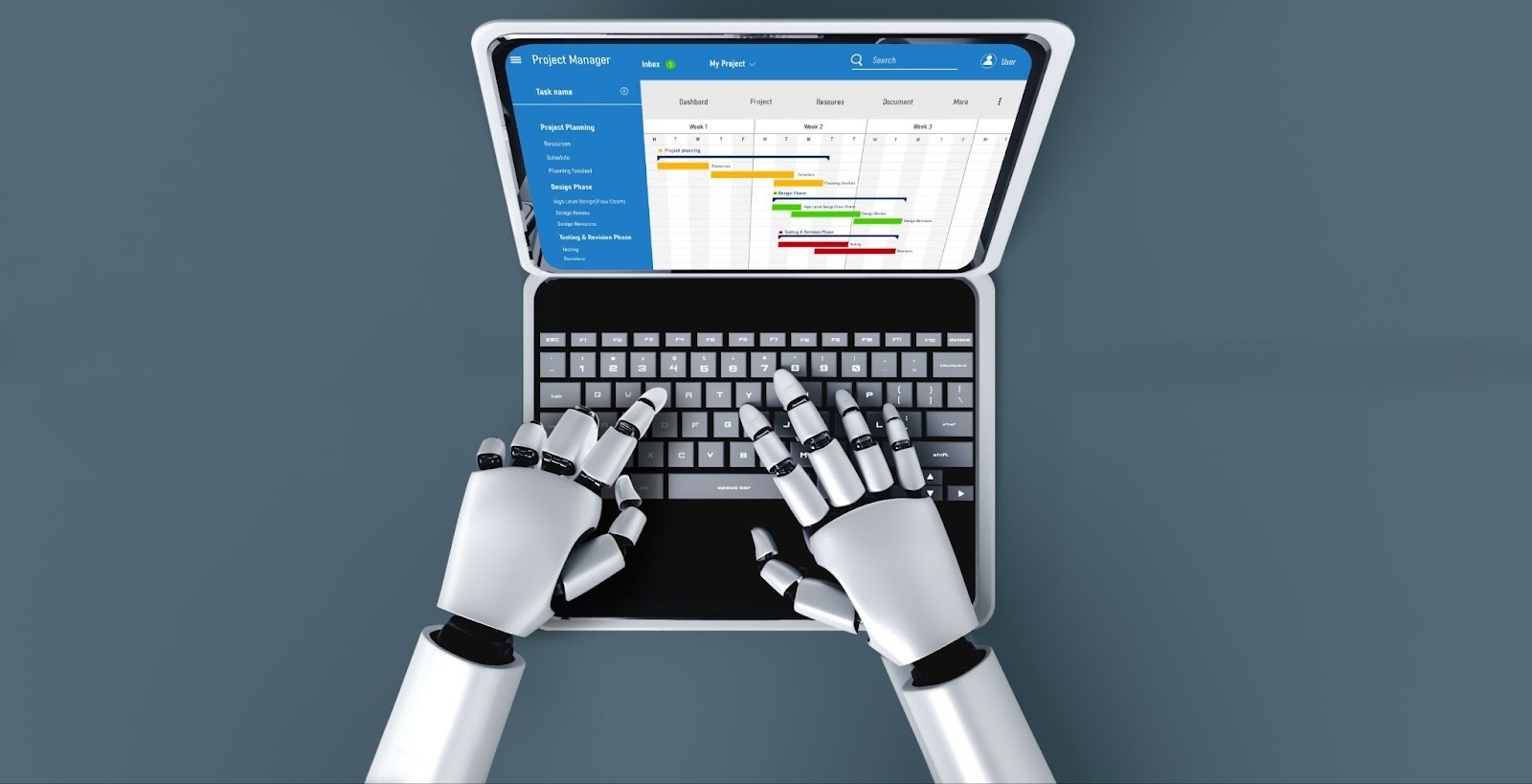
In the past, the idea of using artificial intelligence to run a business felt like science fiction, a capability reserved for big corporations with huge budgets. Fast-forward to now, and that's no longer the case. A quiet but powerful revolution is happening, and it's being led by AI business platforms.
These sophisticated yet accessible tools are empowering small and midsize businesses (SMBs) to automate, optimize, and compete on a whole new level.
AI for SMBs has moved from a futuristic concept to a practical, everyday reality.
What Are AI Business Platforms and How Do They Work for SMBs?
AI business platforms are integrated software systems that use artificial intelligence to automate tasks and provide insights. They help SMBs streamline their operations without the need for a huge IT team or significant financial investment.
They act as a central nervous system for your business.
These platforms bring together data from various departments—like sales, marketing, and customer service—to give you a unified view of your operations. This allows the AI to make connections and find patterns that would be invisible to human eyes, helping you make smarter decisions.
They perform repetitive tasks automatically.
By taking on things like data entry, scheduling, and sending follow-up emails, these platforms free up your employees to focus on more strategic, high-value work. This boosts productivity and reduces the risk of human error.
They provide predictive analytics.
AI business platforms for SMBs can analyze historical data to forecast future trends. For example, they can predict which customers are most likely to buy, what products will be in high demand, or when a piece of equipment might need maintenance.
They personalize customer interactions.
Using machine learning, these platforms can tailor communications and product recommendations to individual customers based on their past behavior. This creates a more personal and engaging experience, which can lead to increased loyalty and sales.
Why Are Small and Midsize Businesses Adopting AI Faster Than Ever?
The push for efficiency and the need to stay competitive are the main reasons small and midsize businesses are embracing AI for SMBs. These businesses often operate with lean teams and tight resources, so any tool that can save time and money is incredibly valuable.
This widespread adoption is also driven by the fact that AI-driven platforms for operations are more affordable and user-friendly than they've ever been.
- Increased accessibility and affordability: The rise of cloud-based, subscription-model AI tools has eliminated the high upfront costs that once made this technology out of reach.
- The need for greater efficiency: With small teams wearing many hats, AI automation for SMBs can handle routine tasks, allowing employees to focus on strategic work that drives growth.
- The pressure to compete: Small companies are using AI to gain a competitive edge against larger rivals, offering faster service, more personalized experiences, and greater efficiency.

How Can AI Improve Day-to-Day Operations for SMBs?
AI in business management can transform the daily workflow of an SMB in many different ways, from handling communications to managing inventory. By automating these processes, AI not only saves time but also provides better data for business intelligence for small companies.
It automates communication and customer support.
AI-powered chatbots and virtual assistants can answer common customer questions instantly, 24/7. This improves response times and reduces the workload on your customer service team.
It streamlines supply chain and inventory management.
AI can analyze sales data and market trends to predict demand. This helps businesses order the right amount of stock, reducing waste and preventing stockouts, which is a major benefit for small business AI solutions.
It optimizes marketing and sales workflows.
AI can help identify the best leads, create personalized marketing content, and automate email campaigns. This means your sales team can spend more time on closing deals and less on administrative work.
It enhances financial processes.
AI bookkeeping tools can automate tasks like invoice generation, expense tracking, and payroll. This reduces the risk of human error and provides real-time financial insights, making it easier to manage your budget.
What Types of AI Tools Are Most Valuable for SMBs?
The beauty of AI business tools for entrepreneurs is that they come in many forms, each designed to tackle a specific challenge. Instead of a single, complex system, small businesses can adopt a mix of specialized tools to meet their needs. This modular approach makes it easier and more affordable to get started.
Here's a look at some of the most impactful AI tools for small businesses.
AI CRMs
An AI-powered CRM takes a standard customer relationship management system and supercharges it with artificial intelligence. It automates tasks like lead scoring, which helps sales teams focus on the most promising prospects.
It can also analyze customer data to provide personalized product recommendations and suggest the best time to reach out to a client. These platforms help you build stronger customer relationships and drive sales growth.
AI-powered project management
Keeping a project on track is a major challenge for any business. AI-powered project management platforms use machine learning to predict potential delays or roadblocks.
They can analyze team performance, workload, and project data to automatically adjust schedules and suggest the best way to allocate resources. This helps teams stay organized and makes sure projects are completed on time and within budget.
Virtual assistants and chatbots
These tools are often the first introduction many small businesses have to AI. They provide instant support to customers by answering frequently asked questions, guiding them through a purchase, or directing them to the right person.
Virtual assistants can also help with internal tasks like scheduling meetings, transcribing calls, and managing calendars, which is a key component of how AI is transforming small business operations.
AI bookkeeping tools
For many small businesses, managing finances can be a time-consuming and daunting task. AI bookkeeping tools automate expense categorization, invoice processing, and financial reporting.
They can even flag unusual transactions to help detect fraud. This saves a massive amount of time and provides accurate financial data, which is essential for making informed business decisions.
Marketing automation tools
AI has revolutionized how small businesses handle their marketing. These tools can analyze audience data to create highly segmented and personalized campaigns. They can automate social media posting, generate ad copy, and even create dynamic email content that changes based on a user's behavior.
This allows businesses to run sophisticated marketing campaigns without a large marketing team.
How Does AI Impact Customer Experience for Small Businesses?
The impact of AI on customer experience is profound. Small businesses can use AI-powered chatbots to provide instant, 24/7 support, answering common questions and resolving issues without a human agent. This improves response times and customer satisfaction.
AI also helps with personalization, which is a huge part of the modern customer experience.
By analyzing customer data, AI business platforms can recommend products they're likely to want, send them tailored marketing messages, and even predict their needs before they express them. This makes customers feel seen and valued, which builds loyalty and encourages repeat business.

Is AI-Driven Automation Cost-Effective for SMBs?
Absolutely. The initial thought might be that AI is expensive, but for SMBs, it’s one of the most cost-effective investments you can make.
The reason is simple: AI automation for SMBs dramatically reduces the time spent on repetitive, manual tasks. That means you can do more with the same number of employees—or even fewer—which directly lowers labor costs.
For example, an AI tool that handles customer service inquiries saves you from needing to hire additional support staff. Over time, these savings add up significantly.
Plus, the insights provided by AI can help you make smarter financial decisions and reduce wasted spending in other parts of the business.
What Challenges Do SMBs Face When Implementing AI?
While the benefits are clear, there are a few hurdles small businesses might encounter when they start to integrate AI.
One of the biggest challenges is the initial learning curve. Many business owners and employees may feel intimidated by the technology and require training to use it effectively.
Another factor is data. AI models are only as good as the data they are trained on, so businesses with limited or disorganized data may struggle to get valuable insights.
- Lack of technical expertise: Small businesses may not have a dedicated tech team to help them implement and manage new AI systems.
- Integration with existing systems: Getting new AI tools to work smoothly with a company's current software can be a technical challenge.
- Data quality and quantity: If a business's data is messy or insufficient, the AI won't be able to provide accurate or useful results.
How Can SMBs Start Integrating AI Into Their Business Model?
Starting with AI doesn't have to be a major overhaul. The key is to begin with a clear goal and a small, manageable project. By taking a step-by-step approach, businesses can test the waters and build confidence before making larger investments.
This approach also allows them to demonstrate the value of the technology early on, which helps with adoption.
- Start with a single problem. Look for one specific, repetitive task that consumes a lot of time, like scheduling social media posts or responding to customer emails. Find a specialized AI tool that can automate that one task. This way, you can see the benefits quickly without disrupting your entire workflow.
- Choose user-friendly platforms. Many AI business platforms for SMBs are designed with entrepreneurs and small teams in mind. Look for platforms that offer simple, intuitive interfaces, clear tutorials, and good customer support. You don't need to be a data scientist to use these tools.
- Train your team. Make sure your employees feel comfortable with the new technology. Provide them with resources and training to help them understand how the AI tools will make their jobs easier, not replace them. This will increase adoption and get better results from your investment.
- Analyze the results. After implementing an AI tool, track its performance. Look at metrics like time saved, reduced errors, or increased sales. This will help you measure the return on investment and decide where to implement AI next.
Are AI Business Platforms Secure and Scalable?
The two questions of security and scalability are very important for any business considering AI. For small businesses, the answer is a resounding "yes" on both counts.
Reputable AI platforms use robust security measures, including data encryption and compliance with industry standards, to protect your business information. They understand that data security is paramount. As for scalability, modern AI-driven platforms for operations are built on cloud infrastructure, which means they can grow with your business.
You can easily add more users, features, or data processing capacity as your company expands, without needing to buy new hardware. This makes AI for startups and small businesses a great long-term investment.
What Does the Future Hold for AI in Small Business?
The future of AI in small business is incredibly exciting. We'll see more specialized tools that are even easier to use, seamlessly integrating into daily workflows.
AI will become less of a separate tool and more of an invisible partner in business management, quietly optimizing processes and providing real-time insights.
We can also expect to see more collaboration between different AI systems, creating a truly intelligent business model. The most successful entrepreneurs will be the ones who embrace these technologies and use them to their advantage, freeing up their own time and their team's to focus on innovation and growth.
The Next Step in Business Intelligence
The rise of AI business platforms for SMBs is not just a trend; it's a fundamental shift in how small companies operate. By embracing these powerful tools, businesses can automate routine tasks, gain a competitive edge, and unlock new growth opportunities.
This revolution is democratizing business intelligence for small companies, putting the power of big data and AI-powered workflow automation into the hands of entrepreneurs everywhere.
To truly transform your sales and customer management, a dedicated AI CRM software is a powerful next step.
One of the best options available is Leapify CRM, a platform designed to help you leverage AI to automate lead management, personalize customer interactions and insights, and close more deals.
Ready to leap into the future of business? Explore how AI can transform your operations today and discover the difference a platform like Leapify CRM can make.



